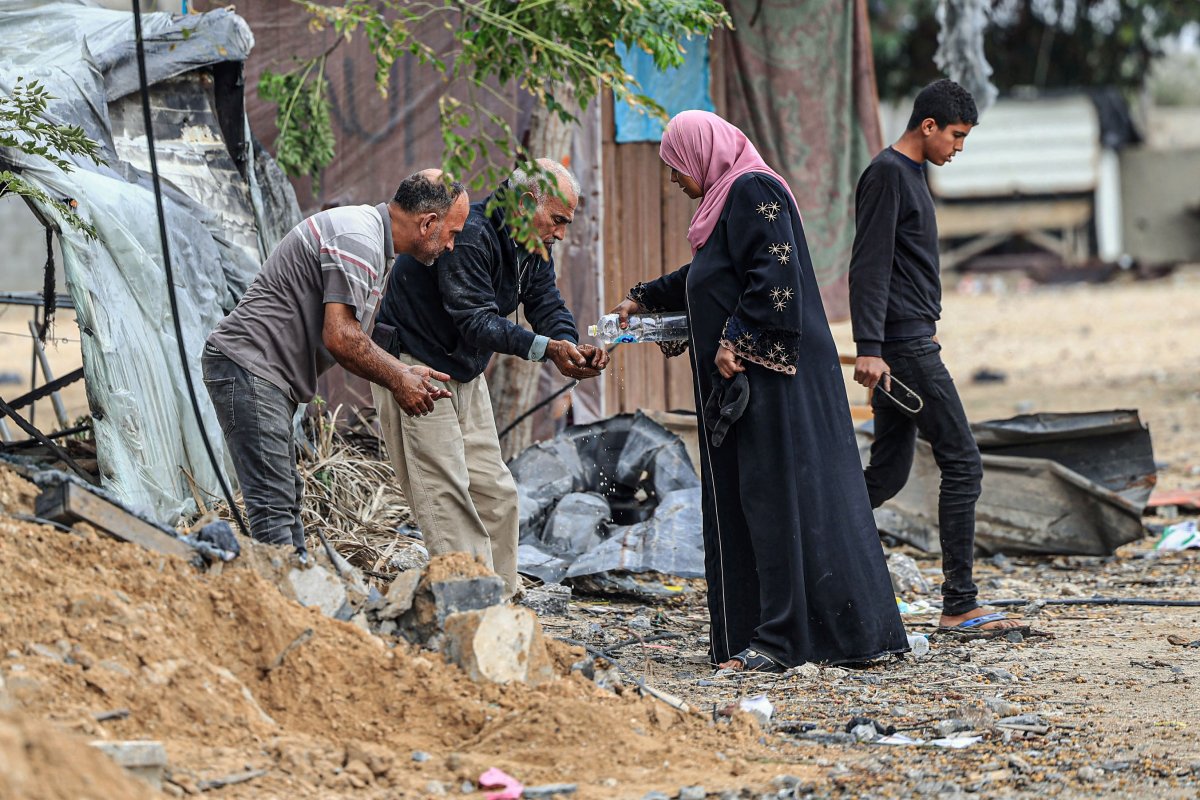Few recent events have so dramatically undermined a sense of global unity and inflamed world opinion as the Gaza war, which saw a much-needed break in the fighting this week with the temporary, and now extended, truce.These fissures are lasting and could destabilize a solidarity that’s vital for one of the most consequential UN climate summits yet—one that climate experts agree is necessary to lock in life-saving climate action.
If next week’s 28th Conference of the Parties in Dubai, or COP28 for short, is going to be successful, then a commitment to conflict de-escalation needs to be as important as a commitment to decarbonization. They’re interconnected.
Global climate deal-making was already “hanging by a thread”, as UN Secretary General Antonio Guterres famously quipped. Now that thread is rapidly fraying as tensions mount in response to the war, which is reshaping national political priorities. And with all eyes on the risks of a wider Middle East war, it could derail much-needed attention that the climate summit requires from governments.

President Joe Biden is now expected to skip COP28, for example. That’s unfortunate. The leader of the most powerful country in the world deciding to prioritize other issues sends exactly the wrong signal to world leaders. The U.S., responsible for the most global CO2 emissions historically, needs to be at the table. If its president is a no-show in Dubai that signals to other heads of state that they can skip, too.
None of this is hyperbole, nor can the urgency of global cooperation on a climate deal be overstated. Scientists now confirm that 2023 will be the hottest year on record, with some months ranking the warmest in 120,000 years. How many more ‘hottest years on record’ do we need before we take this security threat seriously?
The longer we wait to act on climate, the more conflict we’ll see. Climate change will continue to exacerbate tensions in the Middle East, with Israelis and Palestinians among the most affected by a global failure to address climate change at COP28, as they live in one the most climate-vulnerable places on earth.
Within years, global warming could make these already water-scarce areas even more arid and make the land increasingly impossible to live on. Sea level rise could destroy Palestinian real estate and aquifers in Gaza, while degrading Israeli beaches, desalination plants and sewage systems in coastal cities.
The threat of instability is even greater regionally. A recent World Economic Forum report warns that climate change threatens more than half a billion people in the Middle East. And as early as 2030 climate change will push 132 million people into poverty, due to more disasters and destruction of agriculture, and create millions of climate migrants.
In the long term, this instability makes war even more likely as communities fight over increasingly limited resources.
In the short term, the Gaza conflict could easily end up stalling the regional clean energy cooperation we urgently need in the Middle East to avoid dangerous climate change. Which is why leaders should be doing everything in their power to ensure this latest conflict doesn’t ignite a regional tinder box. That would undermine the careful diplomacy required to put in place a robust global climate deal at COP28.
The bigger question is this: how do we save a climate conference from souring given the growing global divisions from the war? The COP28 president’s focus on transitioning away from fossil fuels, tripling global renewable energy capacity, and climate finance won’t get traction if the current conflict dominates the stage and sucks the air out of the room.
Transforming a conflict that’s creating fault lines for the rest of the world requires moral leadership, as political leadership alone is clearly insufficient in addressing the scale of the problem. For the Middle East, the region’s faith-based voices offer both depth to the discourse on decarbonization, resonating with communities on a spiritual and ethical level, as well as moral clarity on the need for conflict de-escalation.
Harnessing the full spectrum of societal influence—including religion—can help address the political divisions that stand in the way of meaningful environmental action. Organizations like Faith for Our Planet (on whose board I sit), for example, will be at COP28 to underscore the necessity of integrating faith-based perspectives into global environmental efforts. Chaired by H.E. Dr. Mohammad bin Abdulkarim Al-Issa—who understands conflict de-escalation, leading the first Islamic religious delegation to Auschwitz in his role as Secretary General of the Muslim World League—this initiative demonstrates the potential power of faith-based leadership.
In Dubai, regional faith leaders have the potential to catalyze collaborative action on climate change while also transforming the current conflict via back-channel and public diplomacy, but they need to be empowered to do so, which is what multi-track diplomacy is all about.
Building off this truce extension, we need an unprecedented effort by the United States and other international actors to transform this conflict—not only to save thousands more lives, but to save the planet. In many ways, the road to global climate deal-making runs through Gaza.
We need world leaders, like Biden, at the climate conference table, talking about conflict de-escalation and decarbonization, because they’re intertwined. A failure to lead on climate means resource conflicts are more likely, while a failure to transform the current conflict means a deal at COP is less likely. It’s time to lean in on both.
Source : News Week
















